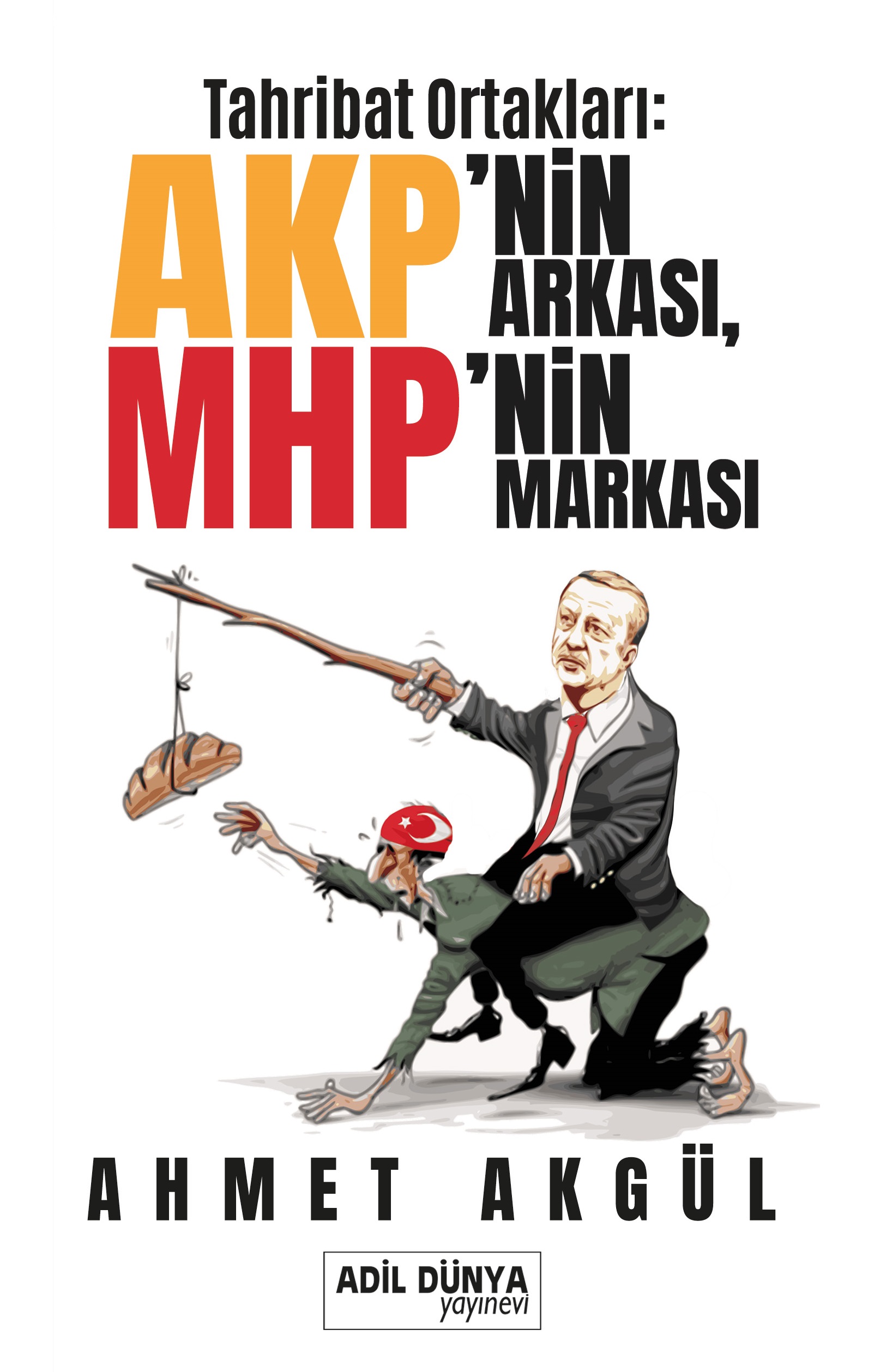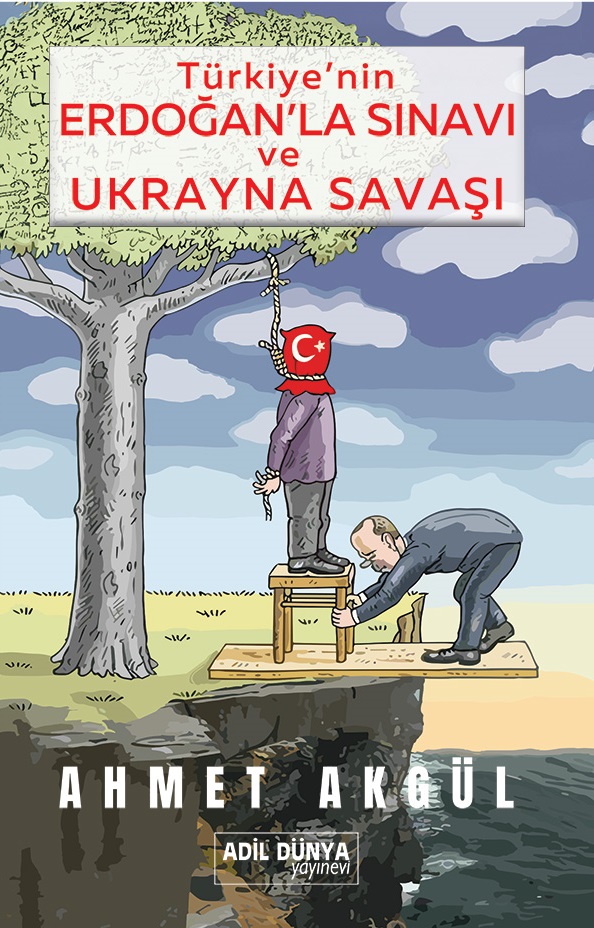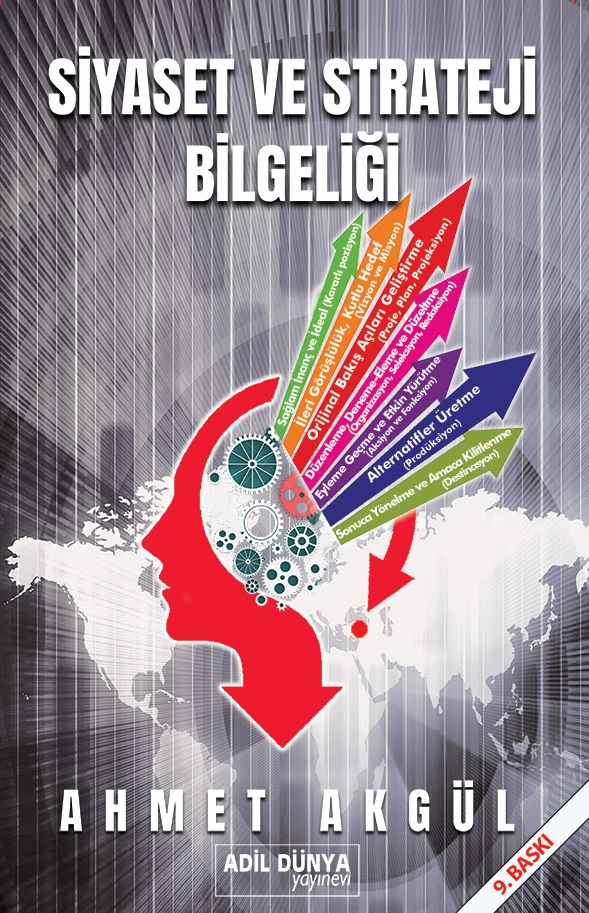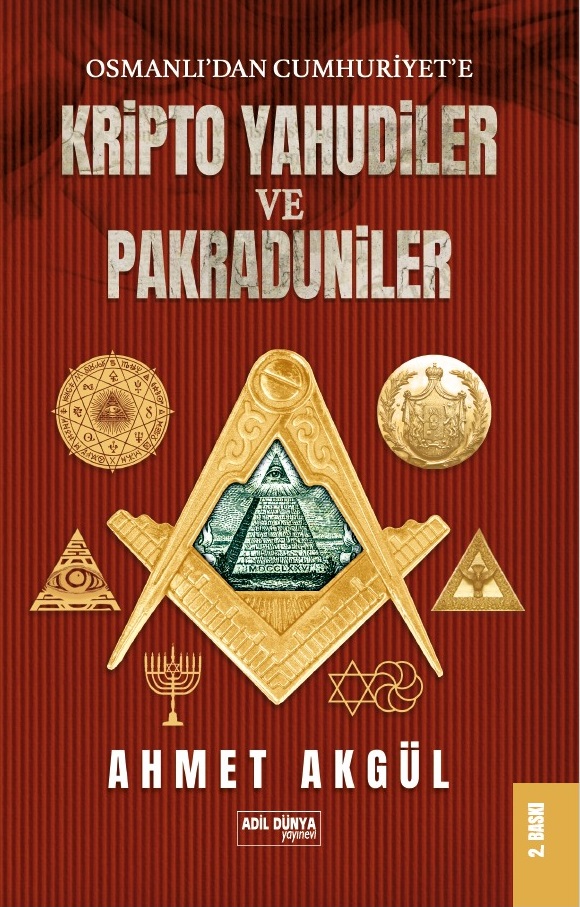“Scientific Order” will be in unison with general order but function independently.
Its fundamental mission is to do research in every field and discover and show the truth and educate real scientists. Our country needs a system that will first determine and identify every sort of problem and downturn of our country and then produce remedies and solutions in terms of order of priority.
Disorganization and disconnection in today’s science and education institutions and curriculums will be annihilated. Waste of opportunity, personnel, time and intelligence will be prevented. Memorizing and imitating and having useless and unnecessary knowledge will come to an end. Instead of busying with imaginary and meaningless things, the youth, by working with up-to-date knowledge, tools and equipment, will struggle and serve to help improve the negative conditions of the country such as 1 – deficiencies in infrastructure, health and education systems and unemployment; 2- air and environmental pollutions, defense, and protecting the oppressed; 3 – instabilities and disorganizations in social and political life; 4 – problems that have importance and priorities in the development of agriculture, industry and technology.
Since science is the common property of the humanity, it is aimed that:
a) A “PATENT FOUNDATION” should be established to make all people benefit from the results of researches and experiments and “scientific data shouldn’t be concealed“
b) A “common language of science” should be built that will be valid both in the country and in the world
c) An international “INFORMATION BANK” should be founded.
Scholarship and making serious researches will be supported with high salary, high esteem, and essential authorization and immunities. Opportunities for constant education and learning and chances to improve knowledge and skills in every area will be created for everyone.
· GUARANTEED EDUCATION
Just Order necessitates a very original and positive “GUARANTEED EDUCATION AND LICENSE SYSTEM“. Namely, everything has a measurement. As length is measured in meter, weight in kilogram and temperature in centigrade, the instrument that measures the level of knowledge is “license”.
As is known, in history
a) Formerly, those who got knowledge through various ways and those who had something to say about an issue used to show up and talk and there used to be curious and devoted groups around them.
b) Later on, the period of teaching (giving lesson) began. More useful and successful teachers were naturally preferred in this period. These teachers used to teach children and give a sermon to the elders.
c) Science gradually became a profession and when disputes and debates began to arise among the scientific authorities, “scientific schools (of thought)” began to appear.
d) Then, distinction was made between “Student – Master” together with the detection of level and category of the scholars.
e) Thus, the door of “ijtihad” was opened to give scientific answer to the questions on the basis of fundamental and general truths, in accordance with the instruction and principle of “ask if you don’t know!”
Namely, people and especially those who were knowledgeable about religious matters would make researches and discuss and they would try to figure out the most accurate answer and behave accordingly.
They would ask whoever knew it in case they did not know or find out about it; but they themselves would decide on who they would resort to and take action accordingly.
f) Later on, religious scholars began to write books that included their views and ijtihads or scholastic researches. Yet, the use of this book by other scholars was dependent on special “permission”. For instance, one of the students of Bukhari could use his Hadith Book only after he had received “permission” from Imam Bukhari.
And people preferred to receive education from those who had such permission and thus the License system came to life and developed.
g) These permissions later were combined and changed into “diploma“. Those received permission from all sciences were called “Dersiam” (a title formerly given to professors that taught in madrasa, a college where the Islamic faith is taught)
h) Today, there are primary, secondary and high schools and faculties that grant diplomas and this system has an international validity.
Guaranty System
There is a “guaranty and compensation system” in Just Order that results from the professional activities or counseling-related views and suggestions of those who have such diploma and license. That’s, if a person faces a problem, damage or loss because of the actions or suggestions of a doctor, engineer, repairman, technician etc.(due to the lack of knowledge or negligence), this person will be compensated collectively by the “Scientific counseling school” of those who have caused it.
Thus, as the members of a school (university, faculty or any other instructing unit) becomes more successful in the society, the number of the students who want to go to that school will increase; and this will increase its esteem (fame and popularity) and also its share that will come from state budget.
In addition to granting “licenses” under guaranty, in order to increase the specialization and quality in science and decrease the number of redundant “employees having a diploma“, certain number of people will be granted a qualification and amount of students to register schools will be adjusted according to the needs of the country. Those who cannot renew and improve themselves and who do not pay enough attention to moral disciplines and values will not receive “license“.
Namely, every person who has a diploma will not be regarded as licensed (qualified), they will have to acquire the essential qualities.
· DEGREES OF LICENCES
1. Possessors of Superior-license: These are the founder of a school (of thoughts), they are regarded as the authority in their field of science and they can act freely depending on their personal views. (professors or higher ranks)
2. Possessors of Higher-license: These can arrive at judgments and state their own views on certain subjects despite being a member of a school (of thoughts). They are mostly executers (the rank of assistant professors)
3. Possessors of Intermediate-license: These are the people that can only understand and perform the systems that are built in certain disciplines. They cannot make any ijtihad on their own and they cannot come up with new and different views and theories. (doctor’s degree)
4. Possessors of Primary-license: they can do or give a job on their own thanks to their knowledge and skills that they acquired by hearing and reading or in master-apprentice system. But these have to be under the responsibility and supervision of a possessor of Intermediate-license. That’s, they have to a member of his/her counseling association. (university level)
5. Possessors of Basic-license: They cannot act themselves independently. They can only perform the duties that have been shown to them or programmed beforehand. (level of high school)
6. Possessors of Starter-license: They can work only under the control and supervision of someone else. (level of secondary school)
Thanks to this new classification and application, knowledge becomes measurable and it is possible to set up a market for it.
Shares of the people in production or wages in services will be adjusted according to these degrees of license or professional skills and even the rights to retirement and credit will base on this.
Namely, trickery, rip-off, favoritism, partisanship will not work; only knowledge, qualification, skills and efforts will be of use.
Those up to the possessors of first-time license will have the right to be elected in “sub-districts” and join their administration. Possessors of intermediate-license will have the right to be elected in “provinces” and join their administration.
Possessors of higher and superior-license will join the state administration and services.
That’s, the right to elect will be granted to everyone but the “right to be elected” will be possible for possessors of first-time license in sub-districts, possessors of intermediate-license in provinces and possessors of higher and superior -license in the state.
Thus, “WISDOM“, the most important quality in Islam, will rule over in the Just Order and National View Civilization.
As “Capital” prevailed in Capitalism, “political authority” in Socialism and “religion” in medieval western theocracies; Wisdom will prevail in the Just Order.
Those degrees of license we stated above are appropriate for the “classifications of mujtahids (Islamic scholars)“.
Here is the evaluation of the Islamic Scholars:
1. Absolute (Independent) mujtahid: He extracts legal rulings and opinions directly from the sources (Sunnah and the Qur’an) and beyond all specific school criteria. He uses his own judgment to determine the best solution to a religious problem that cannot be solved by citing sacred texts.(like the founders of religious sects)
2. Limited mujtahid: He simply extracts prescriptions within the “method” of an absolute mujtahid yet he can oppose to him in detailed cases.
3. Mujtahid in sect: He is dependent on the established principles of his school (of though). He is competent to elucidate and apply the law in particular cases which haven’t been settled by the mujtahids of the first and second ranks.
4. Experts of choice: Scholars who don’t arrive at judgments but prefer one of the different views of mujtahids of the third rank in their own school of thought (i.e. madhhab)
5. Scholars that can establish a point through proofs: These scholars present the evidences for the established judgments; they can make comparison between these evidences and deliver views on the reliability degree of these evidences.
6. Huffaz (Muslims who knows the entire Qur’an by heart): These scholars memorize lots of judgments and narrations belonging to their own school of thought and they are skillful in transferring them to other Muslims. They have authorization in classifying the established judgments in an order with respect to their reliability.
7. Muqallids (Followers): They are able to understand what they read and explain it to the muqallids who can not understand. They are incapable of distinguishing weak narrations from genuine ones.
· GENERAL EVALUATION
Let’s try to summarize the issues explained so far here:
A – Political Structure:
1. Projects of the Just Order are based on a humane and equality understanding which advocates the “power of the justice” rather than an unjust thought which advocates “justification of the power”
2. Developments and changes in the society will emerge as a result of “compromise and agreement” but not methods like wars, invasions, despotism etc.
3. In the light of these truths, a “Social balance” that comprises economic, educational and moral institutions in addition to political parties will be built up.
4. Economic units will be based on “centralized” administration while political units on “decentralized” administration.
5. Social contracts (constitutions) will be arranged through a consensus that targets common beliefs and goals.
6. People will join and become member of “groups” that are sub-units of the economic, political moral and scientific institutions with partner status, there will be solidarity principle between the partners and every group will provide every partner / member with “guaranty” and be held responsible for paying “compensation” for the member’s loss or damage.
7. Public services will be carried out by freelance officers rather than appointed officials and thus the notion of “state of officials” and “dictatorship of bureaucracy” will be cleared away.
8. A more humane system, “accusation“, will be put into effect instead of “investigation” system which is regarded as outdated and executed by the state officials. A written statement made under oath, affidavit, will be satisfactory.
9. “Presidency” system will replace disorder and two headed management. There will be no mayor in sub-districts and provinces. Heads of the sub-districts, provinces and the state will be the leaders, as “arbitrator and organizer“, of the shura which is composed of the representatives of scientific, political, economic and social institutions in their own units and regions.
10. The citizens will be obliged to join each of the social units, yet they will have the right to change them whenever they wish.
11. Besides general citizenship (state citizenship) within this new civilization and system, there will be “settlement right” status for every province and sub-district. Whoever wishes will have the right and freedom to choose a place to live.
Settlement areas will be granted the authorization to issue private and local laws and rules depending on the consensus and wish of the population there. Those who cannot approve these rules will be able to emigrate wherever they want.
Heads of the sub-districts, provinces and state will be granted the right to exile the troublesome and inadaptable persons without mistreating them. Despite this, if these persons reject leaving or well-behaving, the community of these persons will take them out of the legal protection of the community and they will be unprotected.
B – Economic Structure
1. Just Order depends on “partnership of trust instead of conflicts of interest”
2. It provides everyone and every group with “equal opportunities“
3. “Blessing-burden balance” and “service-payment equality” is taken as a base.
4. “It is based on a complete freedom at the micro (individual and company) level and on guidance through planning at the macro (country) level”
5. There will be a definite distinction between public sector and private sector like “a person participating in one of them cannot in the other“. That’s, investment and production is targeted in different and advantageous areas. Because, it is inconvenient and not right for persons who are investor and manager in a private sector to take part in public sector or administration of the state.
6. A system of “bill that stands for the produced goods” will be built to prevent printing fiat money.
7. A system of “partnership” that depends on sharing the total production in economic distribution according to pre-signed contracts will be brought into force.
8. The government will collect taxes as participation share in return for public and infrastructure services, and besides this, there will be a single type of tax system which will be collected only for production and wealth and its amount will be determined by the law.
9. Credits will be monopolized by the government and “the factor of labor” and “useful and advantageous production” will be given priority.
10. There will be applications like “order” instead of buying on credit; “prepayment” instead of loan; “discount due to advance payment” instead of interest, and thus, the system of interest and exploitation will be replaced with “Selem order document”.
11. In this way, in the “partnership economy” of Just Order, the investors will be the people but not monopolies. The real free market economy will come out since not only the ones with big capital but also all share holders will enter the market. There won’t be “monopolization” because the credit is given to employees themselves.
12. Since there is no “fixed costs” in Partnership economy such as interest, advance tax etc that increase cost and are added to the prices, the marginal and average costs will be the same. Therefore, enterprises will have a chance to work and produce even in low-capacities.
13. As this system sees the state as a partner in return for “infrastructure and public services” there won’t be any intervention and bureaucratic obstruction; therefore, “bribery” and “mafia” will be abolished.
14. Since credit is extended in return for the goods, it will not lead to inflation and imbalances in the distribution of incomes will disappear as there will be no commission due to granting credits to employees themselves.
15. Because “participation” will replace loan in this system, the issue of internal or external debts will be out of question and the huge gap between the undeveloped and developed countries will be filled.
C – Religious – Moral Structure
1. Religions, instead of general notions like “Christianity” and “Islam“, will take form as various sects and ethical professions that appear as a natural and historical process. This is because easier in terms of knowing people and founding service integrity.
2. Religious institutions and groups will be given missions like inspection and control or providing a certificate of good conduct and thus they will have an efficient and authoritative position within the social order, but at the same time, they will have to shoulder heavy responsibilities and obligations.
3. Religion will definitely get rid of political and economic units and there will be a real connection and association between religion and science.
D – Scholastic Structure (Educational Order):
1. Science and education will be systemized outside the individual studies. The first condition of this systemization is to program to teach prominent and fundamental sciences, “language” and “mathematics” being in the first place. “Specialization” will be left to the hands of vocational institutions and areas.
2. There will be a “common language” for all sciences and a system in which all scholars working in different areas will be able to understand and help each other.
3. It is aimed that needs of the people will be met and their problems will be solved instead of useless and pointless learning and education.
4. Scientific institutions will be organized according to a system of “groups” and “schools of thought” and people will be able to join and make use of these groups at every level.
5. “License” will be taken into account while measuring scientific career and skills rather than diploma, and “licenses” will be graded.
6. These licenses will be under “guaranty” by scientific and educational institutions, damages or losses caused by the members’ lack of knowledge or negligence will be compensated collectively.
7. Scientists will have autonomy and freedom of thought and authority of legislation (making laws) will be in the hands of this institution. The most appropriate laws regarding health will be made by medical authorities, laws related to public works will be executed by construction and environmental professors, legal authorities will determine the laws about human rights and regulations related to moral will be made by only religious and theologists.
8. Single type of education system will be abolished. Competition and qualification will come to the fore through “central examination system” for those who have diplomas of the different schools and in different areas of specialization
· CONCLUSION
To sum up;
A fourth power, “inspection“, will be added to institutions that form the society in addition to “legislation, executive and judiciary“. The “separation of powers” will be changed into consolidation of power and partnership of trust and new functions will be added to these in accordance with justice principle. Namely;
1. Legislation (making laws) will belong to scientific council
2. Adaptation of economic activities will belong to economic council
3. Governance and executive will belong to political council
4. And inspection will belong to Religious council
As for the judiciary, it will be carried out by independent courts.
A parliament with four councils composed of powers of these four institutions and representatives elected from among them will be established and there will be a nationwide “general parliament” along with the local parliaments in sub-districts and provinces; and the President will act as an arbitrator that keeps the balance and coordination between these councils
Scientific, moral, political and economic institutions and councils will determine, via their internal criteria and regulations, the senior officials that fulfill the duties related to their own activities and functions throughout the country; and these will be officialized by the conformation of the President and there will be a unity of services together with the units connected to the Presidency. Forming the government is the responsibility and duty of the political council.
The citizens who are the members of various political, economic, scientific and moral groups will submit petitions at their own will and they will be installed onto computers at certain intervals. These petitions will include data regarding their political party, moral institutions or religious group, scientific school or university, trade and economic union… So, it will be re-determined how many members-partners these institutions have and in what proportion they are represented in the parliament. As a result of this, today’s election and ballot-box system that has remained out-of-date and led to a chaotic environment will have disappeared with time.
In this system:
a) Sub-districts will be held responsible for internal security
b) Provinces will be responsible for assuring general security within their boundaries and across the country
c) And the state will be held responsible for external security.
An institution will not intervene in sub-institutions except for guidance
States are the members of pacts (community of independent states).
“Direct democracy” will be implemented with civil participation in the sites and sub-districts that are the smallest units of political-administrative structure in the Just Order. Participation in the government will be through “representative democracy” in higher institution units. Thus, people will actively take part in the government directly in small units and indirectly (through representatives they elect) in bigger units.
Parliaments and assemblies across the sub-district, province and state will make and enforce the specific and regional arrangements and decisions pertaining to their own units and regions
The operational principle of the balance of powers in the Just Order:
1. Principle of democracy: the formation of each power will be in a way that enables the participation of people.
2. Principle of grouping: each power will organize according to “multiple grouping” principle in itself. There will be lots of groups composed of at least 5 people and 20 at most in political parties, scientific schools, religious communities and vocational chambers and unions.
3. Principle of changing one’s group: every citizen will have the right to change his/her party, trade union, scientific school of thought and groups pertaining to these if s/he wishes.
4. Principle of proportional representation: participation in the government will base on the principles of proportional representation and be planned as “social compromise=national coalition“. National issues will be handled by referendum rather than the majority system.
5. Principle of arbitration system: decisions of the arbitrators will be taken as a base in judiciary and the presidents’ in executive.
Organizing Process in the Just Order
Economic units are formed and determined by appointment, and political units with election.
Organization is constructed in mutual interaction from central to environment and vice versa. Elections are held in environment that people know. Representatives are elected via bottom-up system while appointments and assignments are distributed via top-down system.
Government:
The president elects the prime minister from the party or parties that have won the elections. Governmental program is prepared according to the manifesto of the parties and the programs are scheduled. The government inaugurates if the motion of confidence passes. If the program falls behind the schedule or if the government doesn’t fulfill its assurances, this is fixed by the control mechanism and then a motion of confidence is proposed by the President. If the assembly takes on responsibility and approves its continuation, the government can use up its time until date of election. And this is declared to the public. Success of the parties in power is determined prior to every election and declared to the public. Thus, the parties that cannot fulfill their assurances will not deceit people. If the assembly does not propose a motion of confidence, the president can take a resolution on a new government or a new election. They act in consultation with senior officials of the four councils. No council goes beyond its duties and intervenes in others, but they work in coordination. The final decision in every sort of conflict is taken by the President. The President represents the country and order. Heads of the four councils are the deputies of the President.
Elections:
People elect political assembly and local administrations. Other councils are determined via autonomous election within every community. Organization of every council is based on its structure and function. Their elections also depend on their own structure. What important in elections is that persons should not vote for individuals or posts that they do not know about. It is more appropriate to elect the director of a unit or the head-director whom they cannot know well by means of representational election instead of direct election. Elections are held in close areas where people know each other. Directors of the economic units come by appointment.















CÜBBELİ AHMET “BEL’AM”CIK’I VE MAHMUT EFENDİ YAKINLARINA UYARI!
FETULLAH GÜLEN DOSYASI
FİLİSTİN’DE; BÜYÜK BAYRAMIN BÜYÜLÜ BAŞLANGICI VE ZEKİ GEÇKİL’İN ŞARLATANLIĞI
FİLİSTİN’DE; BÜYÜK BAYRAMIN BÜYÜLÜ BAŞLANGICI VE ZEKİ GEÇKİL’İN ŞARLATANLIĞI
Dünyanın Fikri Değişimi Türkiye’den, FİİLİ DEĞİŞİMİ İSE FİLİSTİN’DEN BAŞLAMIŞTIR!
OĞUZHAN ASİLTÜRK’ÜN ERBAKAN’A İFTİRALARI
KUR’AN’A TERCÜMAN, OLDUM KOVULDUM! (ŞİİR)
DEVLET VE HÜKÜMET YETKİLİLERİNİN VE DİĞER İLGİLİLERİN DİKKATİNE!..
ERDOĞAN’IN ASİLTÜRK ZİYARETİNİN PERDE ARKASI
YENİDEN REFAHÇI HADSİZE YANIT
Kızıl sular durulacak Çağa mühür vurulacak Adil Düzen kurulacak Mü’minse talip değil mi… Hucurât 15…
İsrail şortu bizden. Su gaz mazotu bizden Meyve Laz otu3 bizden. Gübre azotu bizden Dünya…
İşte milli çözüm Türk ve kürdün Alevi sünminin ve tüm din ve ırktan insanların dünyada…
Şimdi izanla düşünelim ve insafla karar verelim: Ülkemizde Kimileri Atatürk İSTİSMARI, İlke ve İnkılap sentarlığı…
Sabır ister çefakarlık Sadakattir vefakarlık Hak yolunda fedakarlık Milli çözüm soran azdır.
Milli Çözüm; hidayettir, ferasettir, dirayettir! Milli Çözümcüler; seçkin ve nasipli kimselerdir, hidayet, feraset ve dirayet…
Geçmişte ve günümüzde yaşanan tüm olaylar şunu göstermiştir:1. Şeytan ve onun şahaseri siyonizmin elbette öncelikli…
14 Nisan 2024 tarihinde İran, İsrail’e 300 balistik füze ve İHA yollamış, ama hiç kimsenin…
Peygamber Efendimiz “Asabiyyet (kavmiyyetçilik) davasına kalkan, onu yaymaya çalışan, bu dava yolunda mücadeleye girişen bizden…
Irkçılık, körü körüne bir ırkı ve kavmi veya bir soyu üstün sayarak diğer ırkları aşağı…